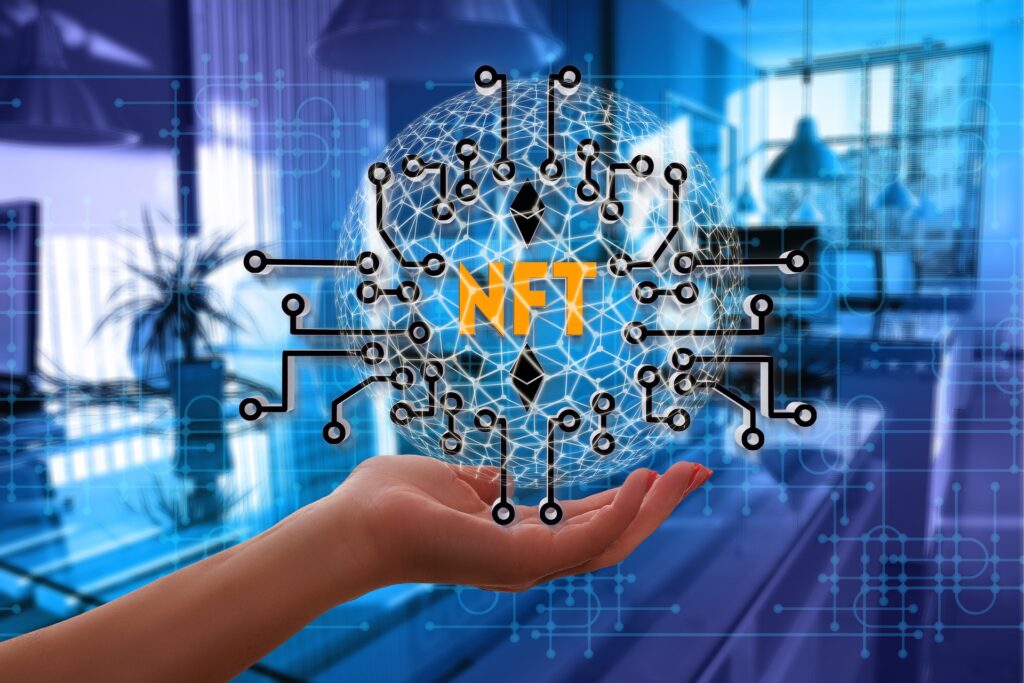The government’s efforts to digitally transform Egypt’s economy should take a significant step forward with the National Artificial Intelligence Strategy (NAIS). It aims to “create promising opportunities for laying the foundation for a national economy … based on emerging technologies,” said President Abdel Fattah El-Sisi in the NAIS document’s forward section.

The strategy’s focus is to “indigenize the AI industry and strengthen Egypt’s leading role at the regional level to become an active global player in the field.” To that end, Sisi stressed the importance of promoting “effective partnerships between the government and the private sector.”
The NAIS is part of the Ministry of Communications and Information Technology’s Digital Egypt initiative announced in 2017. The strategy comprises three phases until 2030. The published document only focuses on phase one, with hints about the following two. That phase “deepens the use of AI technologies to transform the economy, going beyond just adopting technology.” The ultimate goal is that companies and the government would have to “fundamentally [rethink] business models, and [make] big changes to reap productivity gains and create new areas of growth.”
Its primary focus is to introduce AI solutions in government services, agriculture, manufacturing, healthcare, finance and economic predictions, and natural language processing (NLP). Another emphasis is training schoolchildren, postgraduate students, and professionals in the latest AI technologies, regulations, ethics, and use cases. The strategy also aims to cooperate with international partners to ensure technology transfer.
Egypt’s ecosystem
The government started paying attention to AI in 2014 when it launched the Egypt Sustainable Development Strategy, “a road map that aims to maximize [the country’s] competitive advantages,” noted the NAIS document.
In 2019, the government created the National Council for Artificial Intelligence (NCAI) to develop AI technologies. It has members from the Ministry of Communications and Information Technology, Ministry of Higher Education and Scientific Research, and “independent experts and [representatives from] private sector companies,” said the NAIS document. Its mandate is to create the “right investment climate and [implement an] upskilling/reskilling strategy.”
In 2019 and 2020, the state inaugurated seven AI faculties and announced plans for 10 more. It expanded the scope of the Science and Technology Development Fund, created in 2007 to offer grants for AI research, and the Technology Innovation & Entrepreneurship Center, founded in 2010 to incubate startups.
Meanwhile, the startup scene has been proliferating, with most focusing on using technology and AI in their solutions. “Many of these startups have grown into successful companies regionally and internationally, and most of them look at AI as a potential tool to … grow,” said the NAIS document.
Meanwhile, both large and medium companies are investing in AI. The NAIS document estimates 50 domestic businesses use AI-powered applications, and “an increasing number of multinational companies operate AI R&D centers.” That includes Raisa Energy, which solves engineering problems in the oil and gas industry using AI. Valeo Inc. in Egypt is developing AI software for autonomous vehicles. “There have been some acquisitions of Egyptian companies by multinationals,” said the NAIS. A case in point was when Intel bought SysDSoft in 2011, and Atmel Corp. acquired Newport Media (with its biggest office in Cairo).
However, those developments were not part of an umbrella strategy to promote AI, despite the government announcing several large AI-dependent projects such as building 45 smart cities, including the New Administrative Capital and New Alamein, by 2052.
The result is Egypt lags behind all GCC nations, except Iraq, in adopting AI, according to the NAIS document. Nevertheless, “AI is forecast to contribute about 7.5% of Egypt’s GDP by 2030. A national AI strategy … should … explore ways in which [that] can be increased.”

The strategy
Developed and published by the NCAI, the 2021 NAIS focuses on six of the U.N.’s 17 Sustainable Development Goals, specifically inclusive and equitable education (SDG 4), gender equality (SDG 5), inclusive and sustainable growth and decent work opportunities (SDG 8), and fostering innovation (SDG 9). Tackling those goals should reduce inequalities (SDG 10) and build sustainable and resilient cities and settlements (SDG 11).
The outcome of the strategy’s three-year phase one should be to “exploit AI technologies to support … Egypt’s sustainable development goals.” It also would become a tool to facilitate regional cooperation.
NAIS’s first pillar (AI for Government) integrates AI in government operations and public services to improve efficiency, quality and speed, the document said. It also should increase the “quality, efficiency, and transparency” of government decision-making.
Egypt already has developed some components, such as the digital and data infrastructure, under the Digital Egypt initiative. That is the building block “to create new AI applications and add layers of AI functionality,” said the NAIS.
The second pillar (AI for Development) involves developing several priority sectors via “partnerships with local beneficiaries and local or foreign tech partners.” That includes “identifying and executing key projects … directly or through” tech startups.
Those sectors are agriculture, water management, and the environment, which the NAIS noted “have not been reformed for decades,” despite being vital to food and water security and their significant contribution to the economy. According to government data, agriculture accounts for 15% of GDP and directly employs nearly a third of Egypt’s workforce (about 8 million people).
Several national mega projects in agriculture should prove to be fertile ground for AI-powered solutions, especially in irrigation and water management. Changing weather patterns due to climate change will ultimately require better forecasting tools. “Egypt’s emphasis will not be on automation per se … but on enhancing the process and reducing problems,” noted the strategy. That includes developing more efficient ways to produce, harvest and sell crops; detecting defective crops; boosting yields; weather forecasting; detecting diseases and pests; and addressing farmers’ existing and potential problems.
The AI for Healthcare pillar is another focus of the NAIS, where doctors can use AI to detect diseases and analyze tests faster and more accurately. The document noted a shortage of pathologists and radiologists. Therefore, Egypt should focus on AI applications for the early diagnosis of diabetes and cancer.
Manufacturing and intelligent infrastructure management are other potential beneficiaries of the strategy. The NAIS said those solutions would focus on “increasing the competitiveness of Egyptian products” while maintaining employment levels.
That includes promoting small industries, shortening the innovation cycle, and testing facilities for advanced industrial production and transportation. AI also could be used to identify manufacturers’ changing needs and create synergies within various sectors. In infrastructure, AI-powered tools could help predict maintenance needs, prevent crime and manage traffic.
AI also should help boost the banked population, which currently stands at 30%, and support financial inclusion efforts, the strategy noted. Such technology could generate more accurate credit scores and grade applicants with no credit history.
Arabic language processing is a “vital” sector, “allowing not only a more user-friendly way of interacting with [other AI and advanced] systems … but also a powerful tool for extracting contextual information.”
All that should lead to improved economic planning and growth, ultimately using AI to forecast macroeconomic data. Such information might help the government and central bank craft more effective policies.
The third pillar (AI for Training) is educating the public, including promoting applied and basic AI research in universities to deal with both existing problems and those likely to arise in the coming five years noted the NAIS. “It is arguably, the most important pillar, and possibly … the most difficult to fully implement.”
Last year the government announced the formation of the Egypt University of Informatics in the New Administrative Capital as the country’s first university specializing in AI. It offers undergraduate and postgraduate degrees. Meanwhile, the Digital Egypt Builders Initiative, announced in 2020, awards master’s degrees in technical disciplines, including AI. In 2018, the Technical and Vocational Education Training Reform Programme said it would include AI courses in its specializations.
Phase one’s overarching goal is to secure bilateral agreements, regional and international cooperation, and work with the OECD to standardize policies. The goal is to become a leader in the region, representing African and Arab positions on global AI practices. That would be done via “government-to-government collaborations, study visits and workshops, inviting [international] experts, [and] identifying and launching [AI] projects.” It also called for active participation in international conferences, launching and contributing to regional and global initiatives to promote cooperation.

Enablers
Having the proper legislative infrastructure and policies will be vital to AI’s successful integration into government operations and businesses. The national strategy places the NCAI at the top of Egypt’s AI food chain.
Its functions include setting national AI strategy, devising implementation and a follow-up mechanism, setting AI priorities and applications, and recommending training. The NCAI also would recommend economic, technical and legislative frameworks, and oversee any cooperation deals with local or international partners.
It also ensures the “ethical use” of AI-powered applications, setting use guidelines and laws for the government and businesses. Finally, it would “educate practitioners” on AI ethics.
NCAI also classifies collected data, linking them to ethical AI usage laws. It also ensures that the infrastructure can develop with the rising need for more data, which powers those AI systems. Lastly, the council is mandated to establish “centers of excellence” to reverse the AI brain drain, encourage Egyptian AI ex-pat scientists to return home, and create the next generations of technical experts and startups that use AI, noted the NAIS document.
Additionally, Egypt’s AI strategy states that the NCAI would increase funding to AI-powered startups, incubate them, offer incentives to companies to use AI, initiate national projects, and develop suitable infrastructure. Those functions would continue “until Egypt occupies an advanced position worldwide in AI.”
Beyond 2023
The NAIS document, which outlines the first phase of Egypt’s AI strategy until 2023, also offers a glimpse of the two future phases through 2030.
Phase two is a three-year plan that will identify more sectors for strategic implementation of AI. The document mentions education, banking and other financial services, oil and gas, and supply chains.
That stage would focus on scaling pilot AI projects in the government and formal educational institutions with an “emphasis on preparing the next generation of AI researchers.”
Phase three involves Egypt’s AI from 2028 to 2030. “The emphasis will be on strengthening core research capabilities in the country and translating them into sustainable solutions.”
It also will establish and strengthen links between academia and research and industry. By the end of phase three, there would be specialized AI incubators for startups. During that time, the government will have concluded the AI awareness campaign that started in phase one while “producing high-end data scientists and machine-learning researchers,” noted the strategy.
BOX BOX BOX

Planned initiatives for Phase One
The National AI Strategy documents highlighted several initial initiatives that the government has planned for Phase one.
The AI for Government pillar will see a national natural language processing (NLP) platform to accommodate Arabic applications and content. That phase will also see the start of a public awareness program, adopt the “center of excellence [model] to ensure quality and standardization of deliverables,” and identify the most suitable AI use cases. It will also publish the Egyptian Charter for Responsible AI, the AI Catalog and “implement at least 10 pilot projects a year across different government sectors.”
The AI for Development pillar will see the government launch pilot projects in agriculture, healthcare, economic planning, NLP, and intelligent infrastructure and manufacturing. It also saw the inauguration of the Egypt University of Informatics in the new capital.
The AI for Training pillar developed the ai.gov.eg portal as a national AI hub. The government also plans to offer AI education to all school children and undergraduates, launch AI specializations in universities, offer sector-specific AI courses and launch postgraduate degrees. This pillar will also see upskilling programs for professionals, government leaders, and the private sector.







